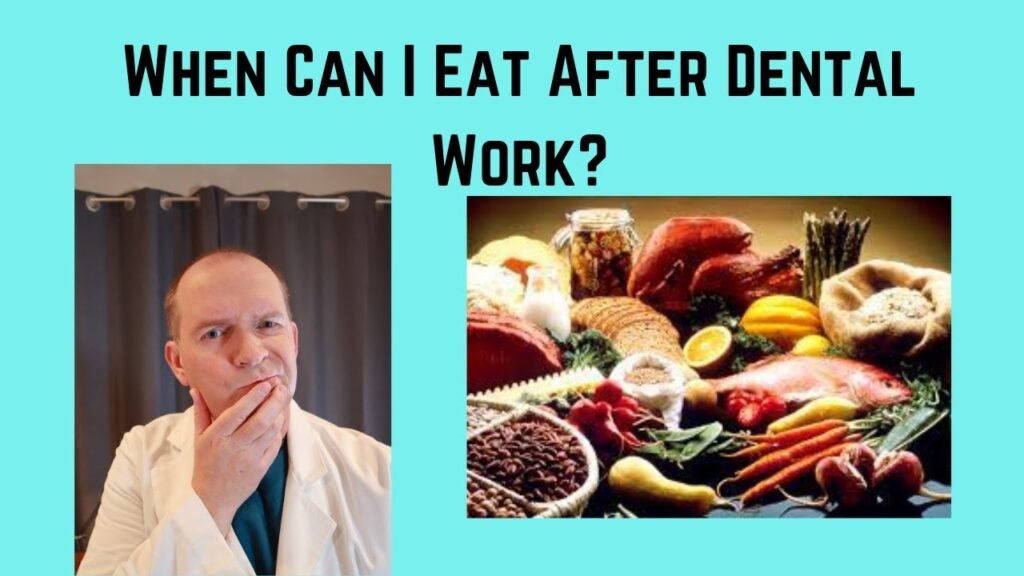Eating Timeline After Tooth Extraction

Are you wondering how long you can eat after a tooth extraction? This common concern can impact your recovery process and overall well-being. In this article, we will explore the timeline for resuming regular eating habits after a tooth extraction, as well as provide tips for a smooth and speedy recovery. Stay tuned to learn more about proper post-extraction care for optimal healing.
How long should I wait before eating after a tooth extraction?
After a tooth extraction, it's important to give your mouth time to heal before eating. But don't worry, you can have something to eat about an hour after the surgery. Just make sure to stick to soft foods for the first 24 hours to avoid any discomfort. And remember to avoid hot foods and drinks for a few hours after the surgery to prevent any irritation.
Once the gauze sponges have been removed from your mouth, you can start thinking about what to eat. Soft foods like yogurt, applesauce, and mashed potatoes are great options for the first day after surgery. And don't forget to take it easy and avoid anything too hot that could cause unnecessary pain. Your mouth will thank you for being patient and choosing gentle foods during the initial healing period.
How soon can I eat rice after tooth extraction?
After getting a tooth extraction, it's important to give your mouth time to heal before returning to your normal diet. Generally, it's recommended to wait 3 days to 1 week before eating foods like rice. This allows the extraction site to start healing without the risk of food particles getting stuck and causing irritation.
Once the initial healing period is over, you can gradually reintroduce more solid foods into your diet. After a week, you can start incorporating softer grains like rice and pasta. However, it's important to still be gentle with the extraction site and avoid very tough or crunchy foods that may cause discomfort or disrupt the healing process.
By the end of the first week, you should be able to enjoy a wider variety of foods, including rice. Just remember to continue being mindful of the extraction site and to brush it gently as part of your oral hygiene routine. Gradually easing back into your normal eating habits will help ensure a smooth recovery from the tooth extraction.
When is it safe to eat chicken after a tooth extraction?
You can start incorporating chicken into your diet after the first 24 hours following a tooth extraction. However, if your mouth is still tender and sensitive, it's best to stick to softer foods for a bit longer. After the initial 24-hour period, you can gradually reintroduce semi-soft foods like chicken, eggs, pasta, and soft vegetables, but be mindful of your mouth's comfort level.
Navigating Your Post-Extraction Diet
After a tooth extraction, it's important to follow a post-extraction diet to promote healing and prevent complications. Stick to soft, easy-to-chew foods like yogurt, mashed potatoes, and smoothies to avoid irritating the extraction site. Incorporating nutrient-rich foods like fruits and vegetables can also aid in the healing process. It's best to avoid hard, crunchy, or sticky foods that can dislodge the blood clot and cause dry socket. Remember to stay hydrated and avoid using a straw, as the suction can also disrupt the healing process.
Navigating your post-extraction diet may seem daunting, but with the right choices, you can ensure a smooth recovery. Opt for foods that are gentle on the extraction site, such as soups, eggs, and oatmeal. Additionally, consider incorporating protein-rich foods like lean meats and beans to support tissue repair. By being mindful of your food choices and staying hydrated, you can help reduce discomfort and promote healing in the days following your tooth extraction.
A Guide to Eating After Tooth Removal
After having a tooth removed, it is important to follow a few simple guidelines to ensure a smooth and quick recovery. Stick to soft foods that are easy to chew, such as mashed potatoes, yogurt, and smoothies, to avoid irritating the extraction site. Avoid hot or spicy foods, as well as crunchy or hard foods, which can cause discomfort and delay healing. Remember to stay hydrated and to gently rinse your mouth with salt water to keep the area clean. By following these tips, you can make the post-tooth removal process as painless as possible and get back to enjoying your favorite foods in no time.
Remember to follow your dentist's instructions closely after a tooth extraction to ensure a smooth and speedy recovery. Generally, it is best to wait at least 24 hours before eating solid foods, and then slowly introduce soft, easy-to-chew options into your diet. By being mindful of what you eat and taking proper care of your oral health, you can help promote healing and minimize any discomfort during the recovery process.